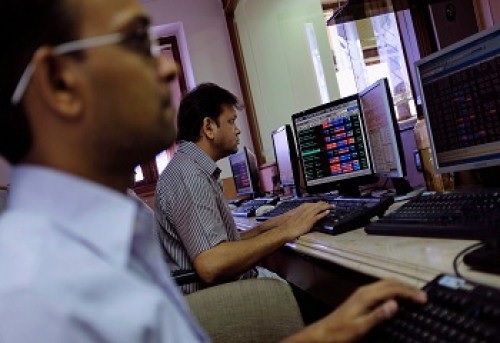Benchmarks end with significant gains; Nifty tops 17,300 mark ahead of Budget
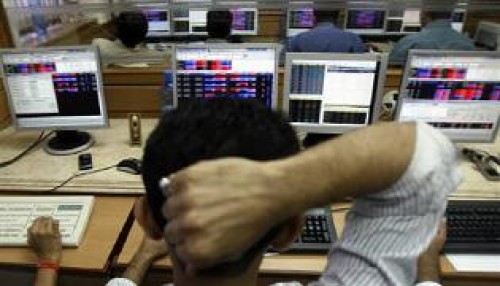
Follow us Now on Telegram ! Get daily 10 - 12 important updates on Business, Finance and Investment. Join our Telegram Channel
Indian equity benchmarks ended higher with gains of over a percent on Monday, taking positive cues from global markets and favourable takeaways from the Economic Survey report. All eyes were now on the upcoming Union Budget, to be presented by the Finance Minister in Parliament on February 1. Markets opened gap up and continued to trade on a buoyant note, as traders took encouragement with the Federation of Indian Chambers of Commerce & Industry (FICCI) in its latest quarterly survey on Manufacturing revealed that the outlook for India’s manufacturing sector seems to have improved in the October-December 2021 quarter even as the cost of doing business remains a cause for concern and hiring prospects remain subdued. The findings of the latest survey also reflect sustained economic activity in the sector, with existing average capacity utilisation in the range of 65 to 70 per cent. Traders also found some solace with Apparel Export Promotion Council (AEPC) Chairman Narendra Goenka stating that the Council is looking at new markets such as Latin America, Australia, and Israel to push the country's apparel exports, which are expected to record healthy growth during the current fiscal and in 2022-23, even though rising raw material prices are impacting the industry.
The frontline indices were seen extending gains in noon deals, after the pre-Budget Economic Survey said India's economy is expected to grow by 8-8.5 per cent in the fiscal beginning April 1 and is well placed to meet the future challenges on the back of widespread vaccine coverage, supply-side reforms and easing of regulations. It also said with forex reserves of over $630 billion and plenty of ''policy room'' to deal with the situation, India can withstand normalisation of monetary policy by central banks of large economies like the US Federal Reserve. Market participants overlooked data showing that investments in Indian capital through participatory notes (P-notes) rose to Rs 95,501 crore till December-end and experts believe that flow is expected to be flat to negative next month. According to Securities and Exchange Board of India data, the value of P-note investments in Indian markets -- equity, debt and hybrid securities -- was at Rs 95,501 crore by December-end as compared to Rs 94,826 by November-end.
On the global front, Asian markets settled mostly higher on Monday, as investors shrugged off data showing that China’s factory activity slowed in January as a resurgence of COVID-19 cases and tough lockdowns hit production and demand. The official manufacturing Purchasing Manager's Index (PMI) registered 50.1 in January, remaining above the 50-point mark that separates growth from contraction, but slowing from 50.3 in December. European markets were trading higher as investors now await cues from a slew of central bank meetings, with the ECB and BoE rate decisions due on Thursday. Meanwhile, worries about the fast spreading coronavirus Omicron variant's impact on global economic growth continues to impact market sentiment.
Back home, on the sectoral front, metal stocks were in focus as worldsteel stated that India's crude steel production rose by nearly 18 per cent to 118 million tonne (MT) in 2021, while world leader China recorded a 3 per cent decline to 1 032.8 MT. Stocks related to pharma sector were buzzing after the Economic Survey showed foreign direct investment in India's pharmaceutical sector saw a ''sudden spurt'' in 2020-21 mainly on account of investments to meet COVID-19-related demands for therapeutics and vaccines. There was some reaction in the fertilizer industry’s stocks with a report that India is likely to set aside about 3 trillion rupees ($40 billion) on food and fertiliser subsidies in its budget next week for 2022/23, roughly the same amount the government budgeted for this fiscal year ending in March.
Finally, the BSE Sensex rose 813.94 points or 1.42% to 58,014.17 and the CNX Nifty was up by 237.90 points or 1.39% to 17,339.85.
The BSE Sensex touched high and low of 58,257.63 and 57,746.15, respectively. There were 27 stocks advancing against 3 stocks declining on the index.
The broader indices ended in green; the BSE Mid cap index rose 1.76%, while Small cap index was up by 0.99%.
The top gaining sectoral indices on the BSE were Realty up by 3.17%, IT up by 2.70%, TECK up by 2.54%, Consumer Durables up by 2.50%, Energy up by 1.83%, while Metal down by 0.01% was the lone losing indices on BSE.
The top gainers on the Sensex were Tech Mahindra up by 4.88%, Wipro up by 3.70%, Bajaj Finserv up by 3.22%, Infosys up by 3.05% and SBI up by 2.87%. On the flip side, Indusind Bank down by 3.51%, Kotak Mahindra Bank down by 2.14% and Hindustan Unilever down by 0.38% were the top losers.
Meanwhile, Apparel Export Promotion Council (AEPC) Chairman Narendra Goenka has said that the Council is looking at new markets such as Latin America, Australia, and Israel to push the country's apparel exports, which are expected to record healthy growth during the current fiscal and in 2022-23, even though rising raw material prices are impacting the industry.
Goenka said the Council is also engaging actively with Indian missions abroad to explore export opportunities for the sector. He said ‘we are expecting to touch about $16.5 billion worth of exports in 2021-22 and $19 billion in 2022-23. We are on the cusp of good growth in apparel. We are also trying to create a brand India image for sustainable growth.’
AEPC Chairman has stated that the production-linked incentive (PLI) schemes for man-made fibers and technical textiles will help attract investments and will push domestic manufacturing and in turn exports from the country. He said free-trade agreements, when implemented, with countries like the UK and the UAE will further help in boosting exports. However, he said the biggest challenge being faced at present by the sector is rising prices of raw materials.
The CNX Nifty traded in a range of 17,410.00 and 17,264.15 and there was 44 stocks advancing against 6 stocks declining on the index.
The top gainers on Nifty were Tech Mahindra up by 5.13%, Tata Motors up by 4.06%, Wipro up by 3.78%, BPCL up by 3.75% and Bajaj Finserv up by 3.30%. On the flip side, Indusind Bank down by 3.50%, Kotak Mahindra Bank down by 2.15%, Coal India down by 1.36%, UPL down by 1.28% and Hindustan Unilever down by 0.29% were the top losers.
European markets were trading higher; UK’s FTSE 100 increased 2.19 points or 0.03% to 7,468.26, France’s CAC increased 31.78 points or 0.46% to 6,997.66 and Germany’s DAX increased 148.81 points or 0.97% to 15,467.76.
Asian markets settled mostly higher on Monday following sharply gains in Wall Street stock last week, and weaker than expected US consumer spending and labour cost data helped ease inflation fears. Meanwhile investors ignored data showing a slower pace of China's manufacturing sector in January as a resurgence of Covid-19 cases and tough lockdowns hit production and demand. Chinese, Taiwan and South Korean markets were closed for the Lunar New Year holiday. Hong Kong shares ended higher with technology stocks leading gains, while Hong Kong markets will be closed from February 1st to February 3rd due to Chinese New Year holiday. Japanese shares gained after Japanese Prime Minister Fumio Kishida said he is not yet considering declaring a state of emergency for Tokyo over a recent spike in cases of the Omicron variant. However, data showed Japan's factory output shrank for the first time in three months in December, while retail sales posted their third straight month of year-on-year gains in December.




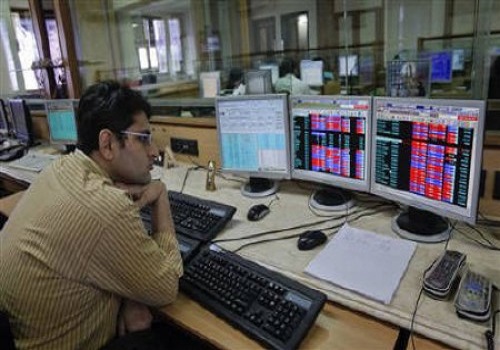
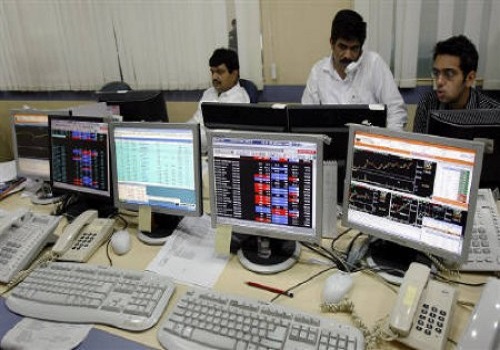

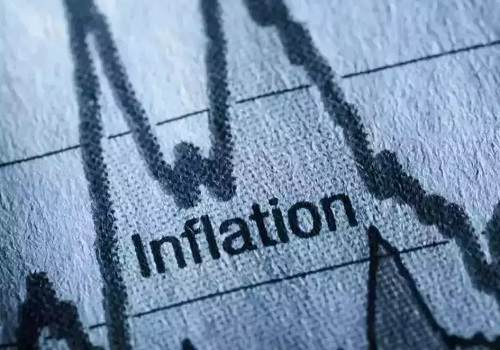


Tag News

Weekly Market Analysis : Markets strengthened recovery and gained nearly 2% in the passing w...













